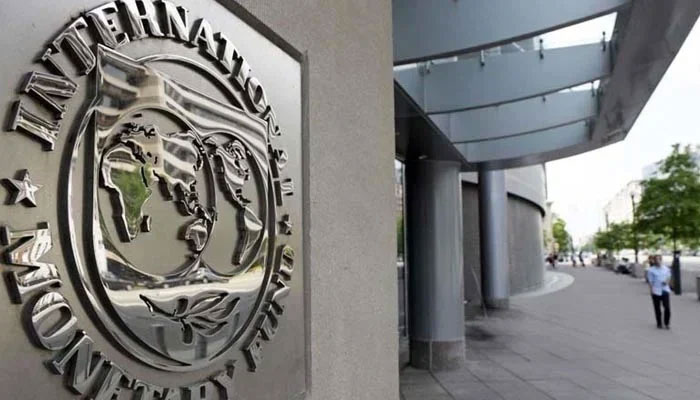Rs2tr new taxes under IMF diktat being planned
Government will have to impose additional taxes of Rs2 trillion in next budget, which was never done in history of Pakistan
ISLAMABAD: With strong chances of fixing annual tax collection target of over 10 percent of GDP, equivalent to Rs12.9 trillion for the upcoming budget, the government will have to take historic additional revenue measures on GST, Income Tax and additional customs duty and excise duty for achieving the desired results.
It indicates that the government will have to impose additional taxes of Rs2 trillion in the next budget, which was never done in the history of Pakistan. If the FBR assumes tax collection of Rs9.4 trillion (which seems quite hard) in the outgoing fiscal year, with nominal growth rate of 16 percent, the FBR could fetch Rs10.77 trillion if one ignores elasticity in revenues. From Rs10.77 trillion to Rs12.9 trillion, the FBR requires additional revenue measures of Rs2.1 trillion in the next budget. The government has shown reluctance to impose GST on medicines but the IMF is insisting to categorise medicines and protect only life-saving drugs and bring all others in the tax net.
Pakistan and the IMF side have been continuously holding virtual talks to finalise budgetary numbers for the coming financial year whereby the IMF made it clear that the government would have to jack up tax to GDP ratio beyond 10 percent in the next fiscal year against 9 percent tax to GDP ratio projected for the outgoing fiscal year. It aims at maximizing revenues and achieving primary surplus of over 1.2 percent of GDP in the next budget.
For achieving this objective, the federal and provincial governments will have to bring all sectors into the tax net. “The government has agreed in principle that the FBR’s tax target is likely to be fixed at Rs12.9 trillion for the next budget for 2024-25,” top official sources confirmed while talking to The News here on Thursday.
The IMF has asked for bringing several dozen items into the standard rate of General Sales Tax, including unprocessed food, stationery items, medicines, POL products and several others. If all measures recommended by the IMF are enforced in the next budget, it could yield additional revenues of Rs1.6 trillion into the national kitty.
The IMF recommended eliminating the fifth schedule, removing exemptions of the sixth schedule and removing the reduced rate of tax under the eighth schedule of Sales Tax.
The IMF asked for the elimination of all zero ratings under the fifth schedule except for exported goods, restrict exemptions under the Sixth Schedule to only supply of residential property (except the first sale) and bring all other goods to the standard rate of GST.
“This will also have taxation on fuel in line with the average of comparators in the region and emerging economies,” the sources quoted the IMF report as saying. The IMF also asked for removing reduced rates under Eighth Schedule and bring all goods to the standard GST rate except a small number of essentials such as food staples, vital education and health items, to be taxed at single reduced rate of 10 percent. In totality, the IMF has asked removing all compliance related distortionary tax policy changes which include eliminating the minimum taxes and surtaxes as well as removing the Ninth and Tenth Schedules.
On rationalizing GST, the IMF has recommended eliminating all zero ratings under Fifth Schedule except for exports. It asked to bring all other goods to the standard rate of GST which stands at 18 percent at the moment.
-
 Why Ariana Grande Wants A 'tiny Mouse' To Play Her In Biopic?
Why Ariana Grande Wants A 'tiny Mouse' To Play Her In Biopic? -
 Wind Chill Returns With Brutal Cold As Polar Vortex Stalls Over Canada
Wind Chill Returns With Brutal Cold As Polar Vortex Stalls Over Canada -
 Costco $20 Rule Explained As Employee Pay Climbs Across North America
Costco $20 Rule Explained As Employee Pay Climbs Across North America -
 Strange Incident Happened At Nancy Guthrie's Home On Abduction's 10th Day
Strange Incident Happened At Nancy Guthrie's Home On Abduction's 10th Day -
 Tumbler Ridge School Lockdown Underway As RCMP Investigate School Shooting
Tumbler Ridge School Lockdown Underway As RCMP Investigate School Shooting -
 Britney Spears Quietly Parts Ways With Her Music Catalog: Report
Britney Spears Quietly Parts Ways With Her Music Catalog: Report -
 Princess Diana Bodyguard Suspected ‘she Could Die’: Here’s How
Princess Diana Bodyguard Suspected ‘she Could Die’: Here’s How -
 Teddi Mellencamp Marks Huge Milestone With Emotional Message Amid Cancer
Teddi Mellencamp Marks Huge Milestone With Emotional Message Amid Cancer -
 King Charles Makes It ‘absolutely Clear’ He Wants To Solve Royal Crisis
King Charles Makes It ‘absolutely Clear’ He Wants To Solve Royal Crisis -
 Kylie Jenner Looks Back With 'grace' On Early Fame Years: 'Just Being Myself'
Kylie Jenner Looks Back With 'grace' On Early Fame Years: 'Just Being Myself' -
 Royal Family Warned To ‘have Answers’ Amid Weak Standing
Royal Family Warned To ‘have Answers’ Amid Weak Standing -
 Marc Anthony On Why Bad Bunny’s Super Bowl Show Mattered
Marc Anthony On Why Bad Bunny’s Super Bowl Show Mattered -
 Kid Rock Gets Honest About Bad Bunny’s Performance At Super Bowl
Kid Rock Gets Honest About Bad Bunny’s Performance At Super Bowl -
 Kylie Jenner Reveals Real Story Behind Her 'The Moment' Casting
Kylie Jenner Reveals Real Story Behind Her 'The Moment' Casting -
 Jaafar Jackson Breaks Silence On Becoming Michael Jackson
Jaafar Jackson Breaks Silence On Becoming Michael Jackson -
 Eva Mendes Admits She Was Jealous Of Ryan Gosling’s CGI ‘girlfriend’ Rocky
Eva Mendes Admits She Was Jealous Of Ryan Gosling’s CGI ‘girlfriend’ Rocky




